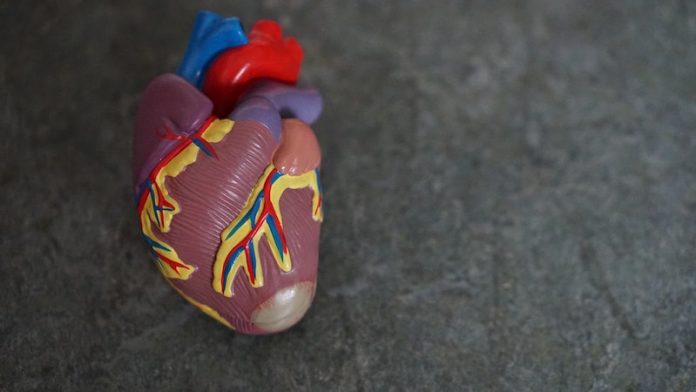
In a new study, researchers found that patients with COVID-19 who were admitted to an intensive care unit were 10 times more likely than other hospitalized COVID-19 patients to suffer cardiac arrest or heart rhythm disorders.
The results suggest that cardiac arrests and arrhythmias suffered by some patients with COVID-19 are likely triggered by a severe, systemic form of the disease and are and not the sole consequence of the viral infection.
The findings differ significantly from early reports that showed a high incidence of arrhythmias among all COVID-19 patients.
They provide more clarity about the role of the novel coronavirus, SARS-COV-2, and the disease it causes, COVID-19, in the development of arrhythmias, including irregular heart rate (atrial fibrillation), slow heart rhythms (bradyarrhythmia) or rapid heart rate that stops by itself within 30 seconds (non-sustained ventricular tachycardia).
The research was conducted by a team at the University of Pennsylvania.
Recent studies from China have suggested that COVID-19 is associated with a high incidence of cardiac arrhythmias, particularly among critically ill patients—early reports showed 44% of patients admitted to the ICU suffered arrhythmias.
Heart rhythm problems occur when electrical impulses that coordinate your heartbeats don’t work properly, causing your heart to beat too fast, too slow, or irregularly.
If left untreated, cardiac arrhythmias can lead to serious medical conditions, including stroke and cardiac arrest—the abrupt loss of heart function.
To evaluate the risk and incidence of cardiac arrest and arrhythmias among hospitalized patients with COVID-19, the team evaluated 700 patients with COVID-19 who were admitted to the Hospital of the University of Pennsylvania between early March and mid-May.
They evaluated cardiac telemetry and clinical records for patient demographics and medical comorbidities—such as heart disease, diabetes, and chronic kidney disease—and recorded patient vitals, test results, and treatment.
Researchers identified a total of 53 arrhythmic events: nine patients who suffered cardiac arrest, 25 patients with atrial fibrillation who required treatment, nine patients with clinically significant bradyarrhythmias, and 10 non-sustained ventricular tachycardia events.
The team did not identify any cases of heart block, sustained ventricular tachycardia or ventricular fibrillation.
Of the 700 patients hospitalized, about 11% were admitted to the ICU. None of the other hospitalized patients suffered a cardiac arrest.
The researchers found cardiac arrest and arrhythmias were more likely to occur among patients in an ICU compared to the other hospitalized patients.
The team says in order to best protect and treat patients who develop COVID-19, it’s critical for us to improve our understanding of how the disease affects various organs and pathways within the body—including our heart rhythm abnormalities.
One author of the study is Rajat Deo, MD, MTR, a cardiac electrophysiological, and an associate professor of Cardiovascular Medicine at Penn.
The study is published in the Heart Rhythm Journal.
Copyright © 2020 Knowridge Science Report. All rights reserved.



